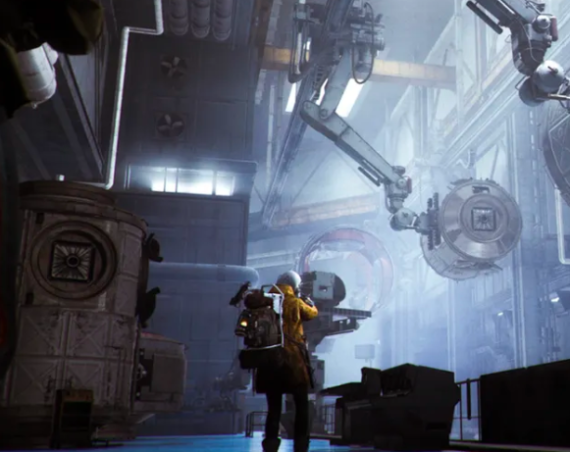
Avoiding Deus Ex Machina and Power Creep in RPG Storytelling
Introduction: Understanding the Challenge in RPG Narratives
In role-playing games (RPGs), storytelling and game mechanics intertwine closely, influencing player experience significantly. However, a recurring trap known as the “deus ex machina”—where unforeseen abilities or solutions suddenly resolve unsolvable problems—can weaken narrative cohesion and player engagement. Power creep, the gradual escalation of character or weapon strength that can leave early game content obsolete, often contributes to this issue.
What Is “Deus Ex Machina” Power Creep in RPGs?
Deus ex machina refers to a narrative device where an unexpected power or item conveniently solves complex problems, often causing players to question the game’s internal logic. This is especially common in RPGs, where characters gain increasingly powerful skills through progression yet sometimes use those skills to bypass challenges in ways that feel unearned or forced.
- Example in popular games: Titles like Kingdom Hearts 3 have been criticized for introducing late-game abilities that trivialize earlier obstacles.
- Player perception issues: Such moments prompt players to ask, “Why didn’t the character just do this from the start?” breaking immersion.
Insights from Clair Obscur: Expedition 33 Lead Writer Jennifer Svedberg-Yen
Jennifer Svedberg-Yen, lead writer at Sandfall Interactive for Clair Obscur: Expedition 33, shared key insights on how her team intentionally avoided this pitfall. In a discussion with the Lits Play channel, she emphasized careful management of power creep within the story and gameplay:
“If you don’t properly define the extent of somebody’s abilities, then you start to get into deus ex machina scenarios where suddenly a character can solve a problem effortlessly, making players wonder why this wasn’t done earlier.”
Svedberg-Yen highlighted the balance needed between gameplay freedom and narrative coherence. She praised her gameplay team for designing abilities that enhance player agency without undermining story integrity.
Why Managing Power Creep Matters in RPG Development
Power creep not only affects narrative believability but also has significant gameplay implications:
- Game balance: Unchecked power growth can render earlier game content irrelevant, reducing replay value.
- Player satisfaction: Clear, consistent ability progression enhances immersion and engagement.
- Narrative trust: Avoiding surprise, all-powerful abilities maintains story credibility.
Studies in game design emphasize that well-defined character progression encourages player retention and satisfaction. According to a 2023 survey by the International Game Developers Association (IGDA), 72% of players report decreased enjoyment when gameplay mechanics feel inconsistent or overly convenient.
Best Practices to Avoid Deus Ex Machina and Power Creep
- Define clear ability boundaries: Establish limits for character powers early in development.
- Progressive complexity: Introduce new mechanics gradually, ensuring challenges scale accordingly.
- Consistent lore integration: Align gameplay abilities with the game world’s rules and story.
- Player agency: Design mechanics providing meaningful choices rather than forced solutions.
- Regular testing: Use playtesting feedback to identify and correct balance issues before release.
Real-World Example: Clair Obscur: Expedition 33‘s Approach
Clair Obscur: Expedition 33 implements a nuanced approach to combat and storytelling. Instead of introducing overpowered abilities late in the game, its gameplay mechanics are designed to promote creative strategy and resource management without providing instant solutions. This helps maintain tension and player investment throughout the narrative.
Svedberg-Yen explained their internal discussions about power creep helped the team ensure gameplay freedom didn’t conflict with story meaning. Their success demonstrates how intentional design decisions can prevent common RPG storytelling pitfalls, enhancing overall player experience.
Conclusion: Crafting Cohesive RPG Experiences
The balance between character power progression and compelling storytelling is vital in modern RPG development. Avoiding the deus ex machina trap through vigilant management of power creep preserves narrative integrity and gameplay balance. Insights from the development of Clair Obscur: Expedition 33 underscore the importance of clear ability definitions, gradual progression, and deep collaboration between writers and gameplay designers.
As the RPG genre continues to evolve, developers who prioritize these principles contribute to richer, more immersive experiences that respect both player expectations and narrative authenticity.
Key Takeaways:
- Deus ex machina moments detract from story credibility and player engagement.
- Power creep must be carefully controlled to maintain balanced gameplay and narrative consistency.
- Collaboration between narrative and gameplay teams is essential to managing ability progression effectively.
- Clair Obscur: Expedition 33 serves as a strong example of successfully avoiding classic RPG storytelling pitfalls.


